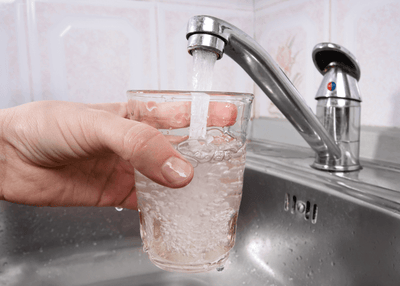Tap Water Chlorination: The good, the bad, the unknown
RSS
The Good:
Shortly after scientists in the 1800's demonstrated that microorganisms are responsible for many diseases, people began experimenting with ways to disinfect water. Fast forward to 1908, Jersey City began injecting chlorine into the public tap water supply, which marked the beginning of large-scale water disinfection in the United States. Since then, disinfection practices have become commonplace in the developed world, and the spread of waterborne illness through public water supplies has come to a screeching halt. This is a very good thing.
The Bad:
By design, chlorine-based disinfectants (like bleach) cause damage to living things, otherwise they wouldn’t be effective. Of course, chlorine-based compounds don't kill humans at concentrations found in tap water, but there are known side effects of consuming and showering in chlorinated water, including skin,eye & stomach irritation. While the allowable chlorine levels set by EPA are at a level low enough so they don’t cause adverse effects in the majority of people, some people (myself included) are sensitive to chlorine-based chemicals found at concentrations allowed in tap water.In addition to these negative “health based” side effects, there are other “nuisances” caused by chlorine in water. For example, anyone who has spent time in a chlorinated pool or hot tub knows that chlorine-based chemicals can cause hair and clothes to fade (picture below), and a quick Google search reveals plenty of reasons for using purified water for things like watering houseplants, watering gardens, and filling fish tanks.
The Unknown
Here's what we know:- We know that untreated water can transmit waterborne diseases (e.g. dysentery, Cholera, E. coli …)
- We know that disinfecting water with chlorine-based chemicals greatly minimizes this risk.
- We know that the known side effects of chlorine-based disinfectants are minor when compared to the risk of waterborne disease.
However, as is the case with most things, our understanding of water quality is still progressing. A great deal of research is currently focused on a class of chemicals referred to as "disinfection byproducts." Simply put, disinfection byproducts are the chemicals that form in water when chlorine-based disinfectants react with organic matter.
Scientists are still studying the chemistry and toxicology of these compounds, but what we do know suggests that these chemicals may not be great for us over the long term.
Chloramines:
About 25% of municipalities in the US (including Washington, DC) use chloramines (also known as combined chlorine) as the primary public water supply disinfectant. Chloramines are formed by adding ammonia to chlorinated water. Chloramines (like chlorine) is an effective disinfectant, and it's effect is persistent in the distribution system due to its low volatility. However, this persistence makes it so chloramines do not "go away" if you leave an unsealed container in the fridge overnight, so we have to deal with the associated taste and odor.
Chlorine:
DC's tap water switches over to a chlorine disinfection cycle for a few weeks each spring. This more aggressive "spring cleaning" kills any microbial buildup that may have occurred throughout the distribution system. During these few weeks, many DC residents may notice a change in their tap water's taste and odor. Fortunately, because chlorine is more volatile than chloramine, the unpleasant taste/odor is minimized if you let a container of water sit out overnight.
Sources:
https://www.britannica.com/science/microbiology
https://www.epa.gov/ccr
https://www.cdc.gov/safewater/chlorination-byproducts.html
http://water.epa.gov/drink/contaminants/basicinformation/disinfectionbyproducts.cfm
https://www.dcwater.com/DrinkingWaterQualityFAQs
https://www.dcwater.com/whats-going-on/news/spring-cleaning-region%C2%92s-drinking-water-system
Other Great Articles From Water Smarts Magazine:
Fluoride in Municipal Tap Water: What You Need to Know
Lead Contamination in Flint, MI Drinking Water: Why it Could Happen in Your City?





